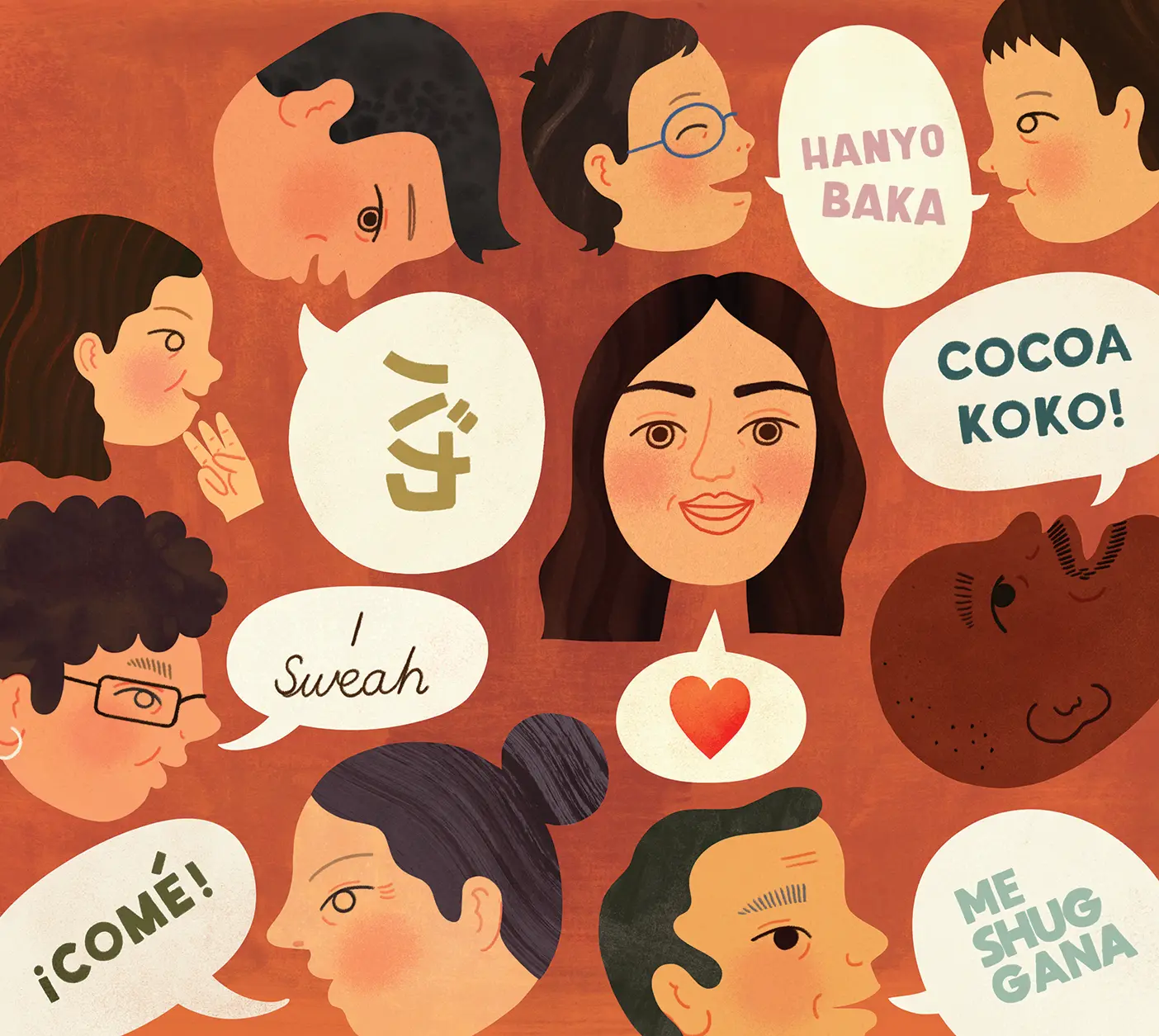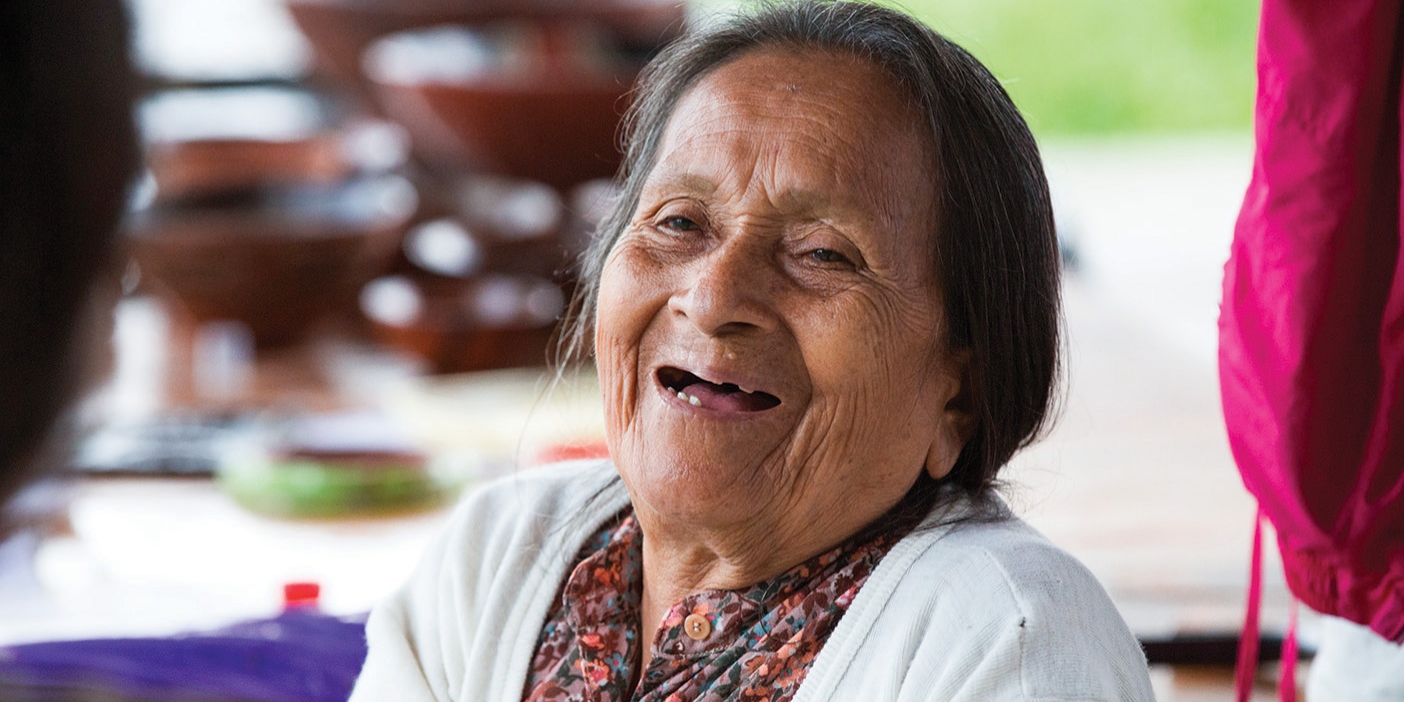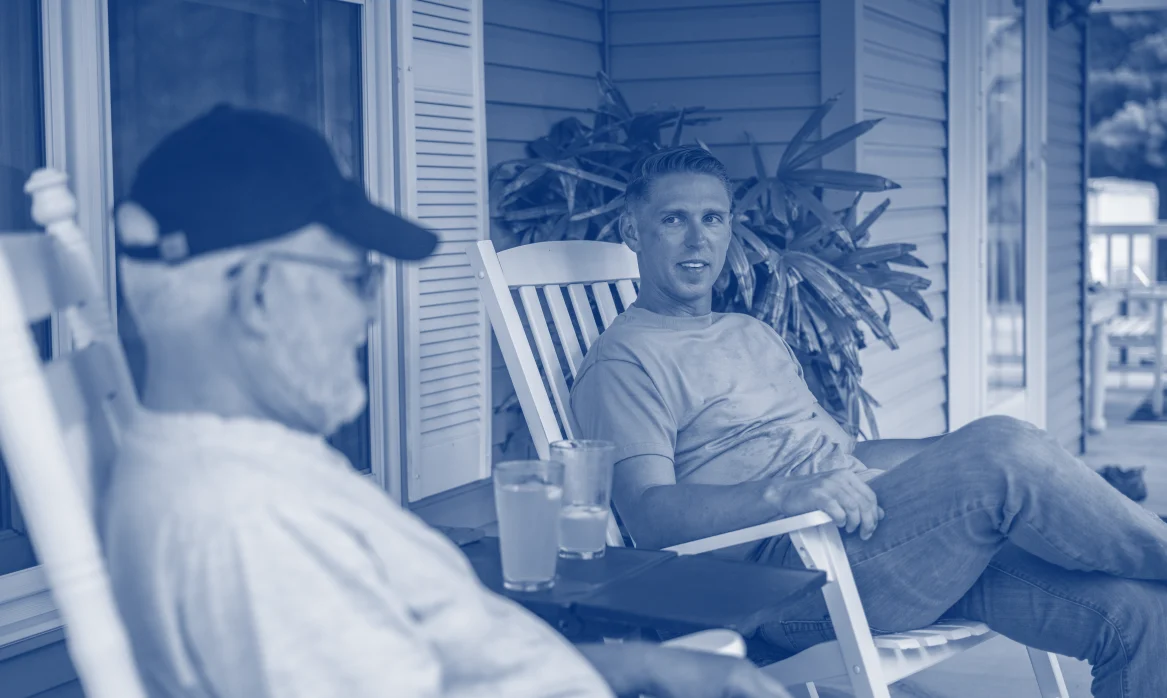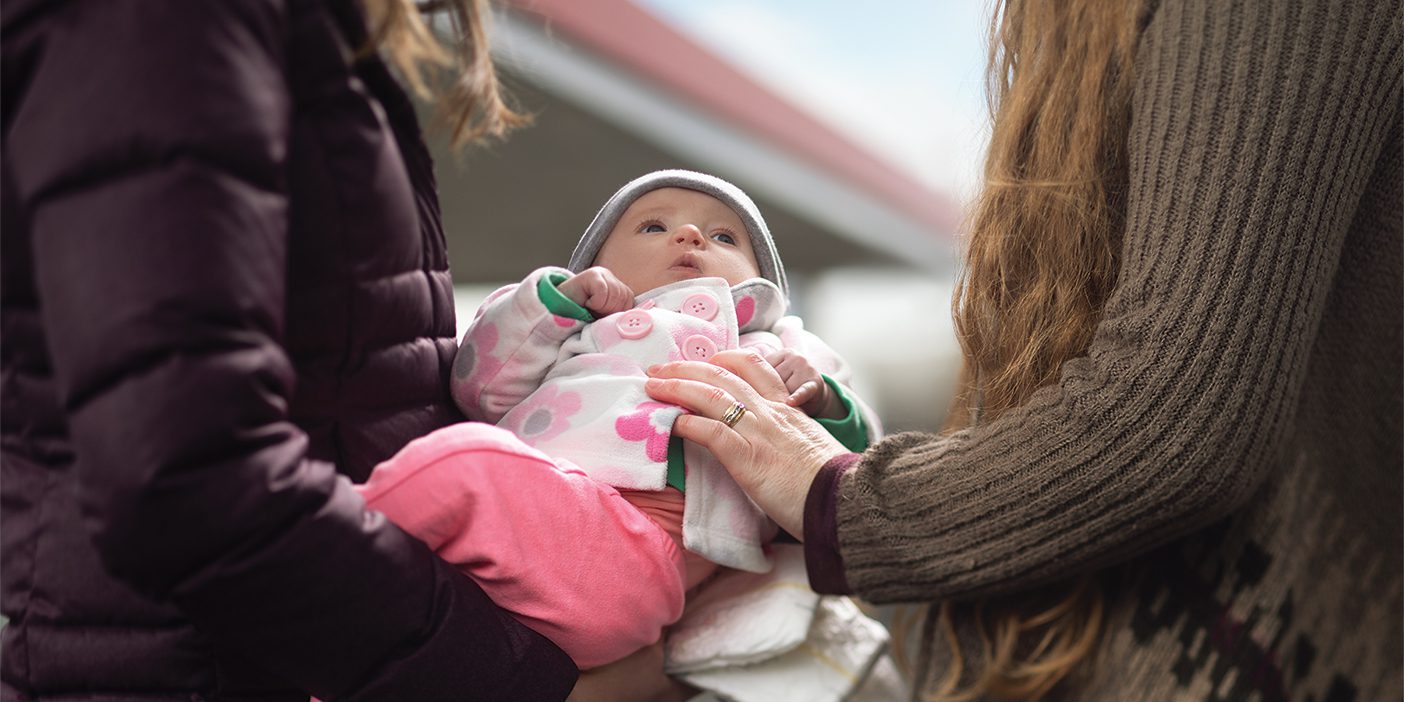Silly slang and cultural traditions accent and unite this one-of-a-kind family.

Meshugana [muh-SHU-guh-nuh], my Ukrainian Jewish grandpa would call me when I was a little girl. He always said it so endearingly that I was surprised, and admittedly a little disappointed, to find out as an adult it wasn’t the Yiddish equivalent of cutie pie or sweetheart. Its definition? Foolish or crazy person. Of course, he was only teasing me.
My Italian Catholic grandma spoke with a thick New York accent, adding flavor to her entertaining and humorous stories, singing along to Frank Sinatra, or cursing like a sailor when she was angry. One of her catchphrases was “I swear!”—dropping the R, of course—sometimes to confirm that her grand stories were in no way exaggerated (“I sweah it was the best sawce I evah tasted!”), other times to express exasperation (“I sweah if I catch you touching him one moah time!”). I find myself using the phrase frequently when frustrated too, complete with my grandma’s dramatic flair.
My mother is a Nuyorican; that is, a Puerto Rican from New York City. Spanish is her native tongue, but she mastered English and instilled in me a love for the language that ultimately led me to major in English language at BYU. Although I never learned to speak her first tongue fluently, some Spanish has stayed with me. Come [KOH-meh], the command to eat, I have said to all three of my children. They use the Puerto Rican term titi [tee-tee] to refer to their aunts. When my kids get hurt, I gently rub the injured area and repeat the rhyme that makes all owies better:
Sana, sana, colita de rana.
Si no sanas hoy, sanarás mañana.
Heal, heal, little tail of the frog.
If you do not heal today, you will heal tomorrow.
Add to the equation my husband, who is half Japanese and half Native American. You will hear him shout almost daily to the kids, “Hanyo!” [HAHN-yoh], “Come on!” in Oneida. When the kids act like knuckleheads, he will call them baka [bah-kah], Japanese for fool, in the same playful manner as my grandpa.
My favorite family word story is how our nickname for uncle came to be. First, you have to understand that potty humor runs (pun intended) on both sides of my husband’s family, but Japanese culture is notorious for it. The Japanese word for poop is unko [OON-koh], which sounds similar to uncle. My husband’s uncle referred to himself as Unko Wells, and my husband continued the tradition by teaching our firstborn to call my husband’s brother Unko Adam. Our son said “Koko” Adam instead, and it has stuck with all the kids since. It even extends to my side of the family, with my oldest brother, who is Black, joking about being the “cocoa koko.”
My little sister was nonverbal when she was very young, so our mother bought ASL signing videos for her. My sister even got to be in one of the volumes when filming occurred in San Diego, and she went on to take several ASL classes in high school and college. Once I had kids, I showed them the same Signing Time videos and loved pointing out when their titi would appear on screen.
Although our children no longer sign, my husband and I still find ourselves relying on some ASL vocabulary when trying to communicate quietly. I will tap the letter W on my chin to ask him for some water, and he will form the letter T and shake his hand to tell me he has to use the restroom. Sometimes I will tap my fingers to my mouth to remind my children to eat. (Does anyone else have youngsters who get so distracted at mealtime?)
The linguistic cherry on top is all the silly words I have made up over the years for my children, just as my dad did with us. We have our own family slang that makes us laugh and unites us in goofiness.
English may be the only language my little family speaks fluently, but in our home it’s enriched with cultural phrases and family traditions. We have created our own dialect that honors all our heritages, reflects our uniqueness, and embraces future additions. When it comes to words, I believe the more the merrier!

Francesca Nishimoto, a freelance writer, enjoys dancing, reading, and different cultures.
Share a Family Story
In Letters from Home Y Magazine publishes essays by alumni about family-life experiences—as parents, spouses, grandparents, children. Essays should be 700 words and written in first-person voice. Y Magazine will pay $350 for essays published in Letters from Home. Send submissions to lettersfromhome@byu.edu.












